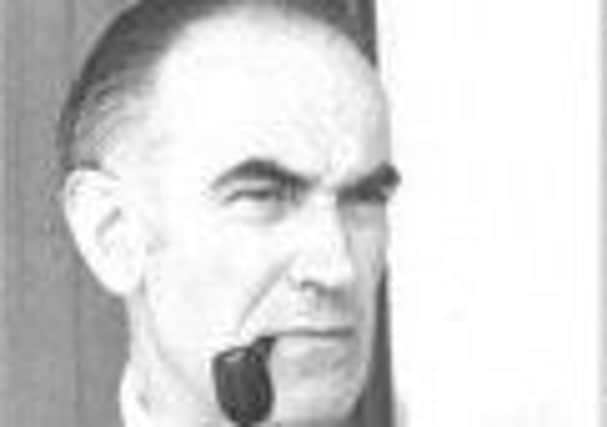Obituary: James Jardine, OBE, former chairman of the Police Federation


JAMES Jardine was a no- nonsense chairman of the Police Federation who crossed swords over police pay with the Callaghan government and emerged victorious. Jardine was the national leader of the police force in the Seventies when relationships with the police and the Home Office grew steadily worse.
The Police Federation represents all ranks up to and including chief inspector in England and Wales and Jardine represented their interests in negotiations at government level. He was particularly involved in the tortuous negotiations with the Labour government led by Jim Callaghan over the force’s pay and vehemently argued for improved pay and conditions. He encouraged rank and file officers to assert themselves on law-and-order issues and organised a petition within the force calling for the return of capital punishment.
Advertisement
Hide AdAdvertisement
Hide AdHis cool and determined manner proved invaluable during meetings at No10 and he remained firm and resolute throughout the annual pay discussions.
He displayed similar qualities when serving with the British Brigade in Korea in 1950. Colonel Jack Aspinall of the Royal Military Police served with Jardine and recalled that during a strategic, and difficult, retreat “there were frequent confrontations, often with armed groups. When trying to bring some order, it was a great comfort to me to have this tall and lanky Scot with his cocked sub-machine gun at my side. He was good company, with a mordant sense of humour and a strong sense of duty.”
James Thomson Jardine (always Jim) grew up in Bonchester Bridge near Hawick. His father, a farm labourer, became a widower when Jardine was a child and work was not easy and money was scarce. Five of his brothers and sisters were placed in an orphanage, but Jardine was brought up in the Borders with his father. After school, he worked on the farms nearby and then joined the Forestry Commission before National Service with the Royal Scots and King’s Own Scottish Borderers and then the Military Police. Jardine was mentioned in dispatches during the Korean War for remaining at his post directing military traffic, while the area was pounded by heavy enemy artillery fire.
On completing his National Service in 1952, Jardine joined the Metropolitan Police, serving in central London – principally as a patrol car driver. Once, when answering a 999 call, his car was hit by another vehicle and his colleague in the car was killed instantly. Jardine was also thought to be dead and his body was covered on the pavement, ready for removal – but an ambulance driver noticed a slight movement of his body and he was rushed to hospital. He was immediately treated for a fractured skull.
He was involved with the Police Federation from the early Seventies and rose to become its national chairman in 1976. Callaghan’s government was trying to abide by a harsh prices and incomes policy and pay increases were strictly monitored. Jardine argued, forcibly, that the police were a special case. The talks were soon at deadlock – indeed, Jardine led his colleagues out of talks and the deep dissatisfaction within the force was deteriorating rapidly. Officers were not allowed to strike and secret ballots confirmed, for the first time, that the force was in favour of industrial action. Callaghan refused to budge and the meetings in Westminster Hall were adjourned. During the recess Jardine, it is thought, was told by a senior official that calls for a strike could result in his being taken to court and possibly imprisoned for “causing disaffection”. Later, Jardine emerged to tell reporters that the police had been offered “less than would fill a ham sandwich”.
That summer the Home Secretary, Merlyn Rees, boldly spoke at the federation’s annual conference. Jardine, in his welcoming speech told him: “This could be your last chance.” When Rees spoke, he was heard in stony silence and had to be given a police escort to his car. The battle continued into the autumn, but Jardine’s tenacity and skills as a negotiator were rewarded when the government set up a commission of inquiry, led by Lord Edmund-Davies, in 1977 into police pay and recruitment. It proved a pivotal point in determining their working conditions and resulted in officers receiving substantial pay increases.
Jardine retired in 1982, when he was awarded the OBE. In his retirement, he was an active volunteer for Victim Support in Epsom. He was far from the rather remote figure seen on television. In fact, Jardine was a relaxed and entertaining man, excellent company and a fine raconteur. He was an excellent public speaker and, throughout his career, displayed a shrewd ability to assess a situation and take the appropriate action.
Jardine’s first wife predeceased him and he is survived by his second wife, Gwen, and her three children.